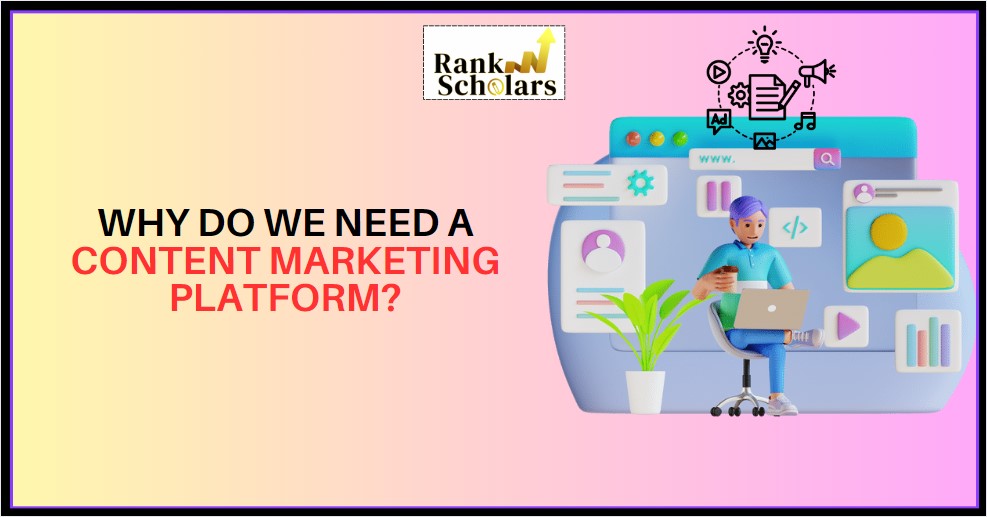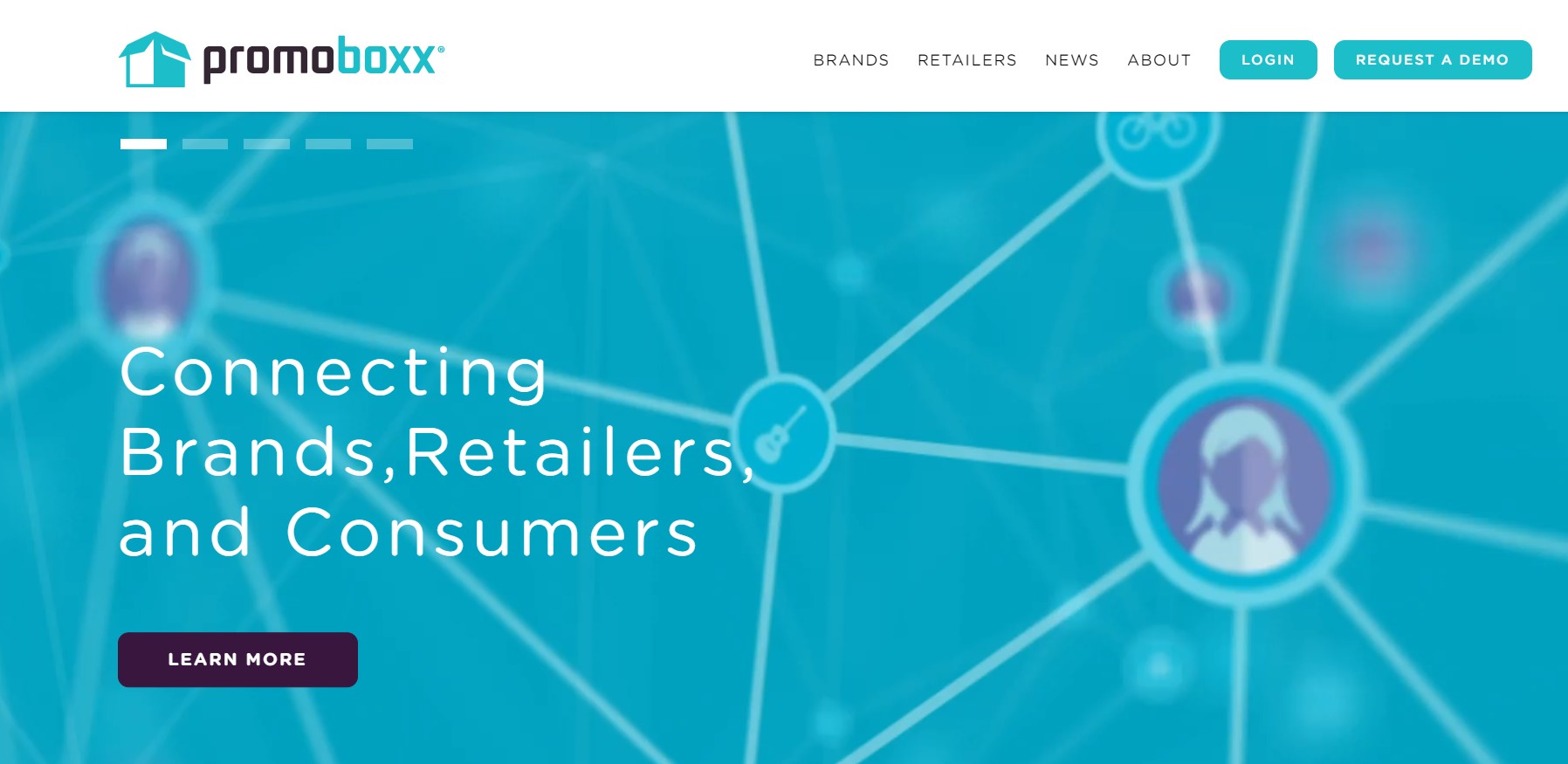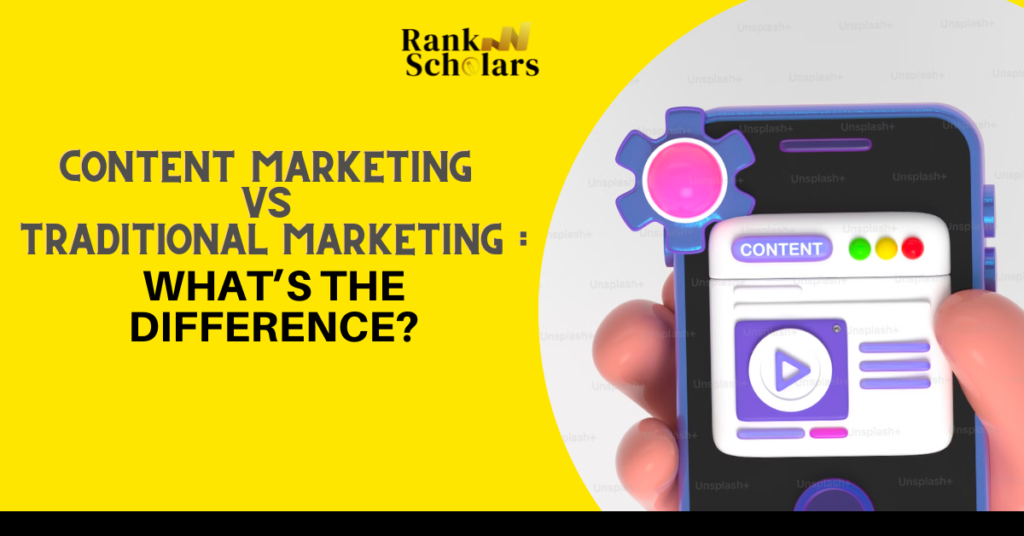Why do we need a content marketing platform ? – This is a common question among content marketers.
Creating and managing content can be a tedious task, especially in the present world of digital marketing. Many businesses struggle to keep up with the demand for fresh content. This is why we need Content Marketing Platforms(CMPs). CMPs help you plan, create and share content more efficiently. They make your marketing efforts more effective.
If you’re having trouble managing your content marketing strategy or reaching your target audience, no need to worry.
In this article, we’ll explain why do you need a content marketing platform ? We will also understand its benefits and how it can improve your digital marketing efforts. Come, let’s explore how CMPs can help you succeed.
What is CMP and How Does It Work?
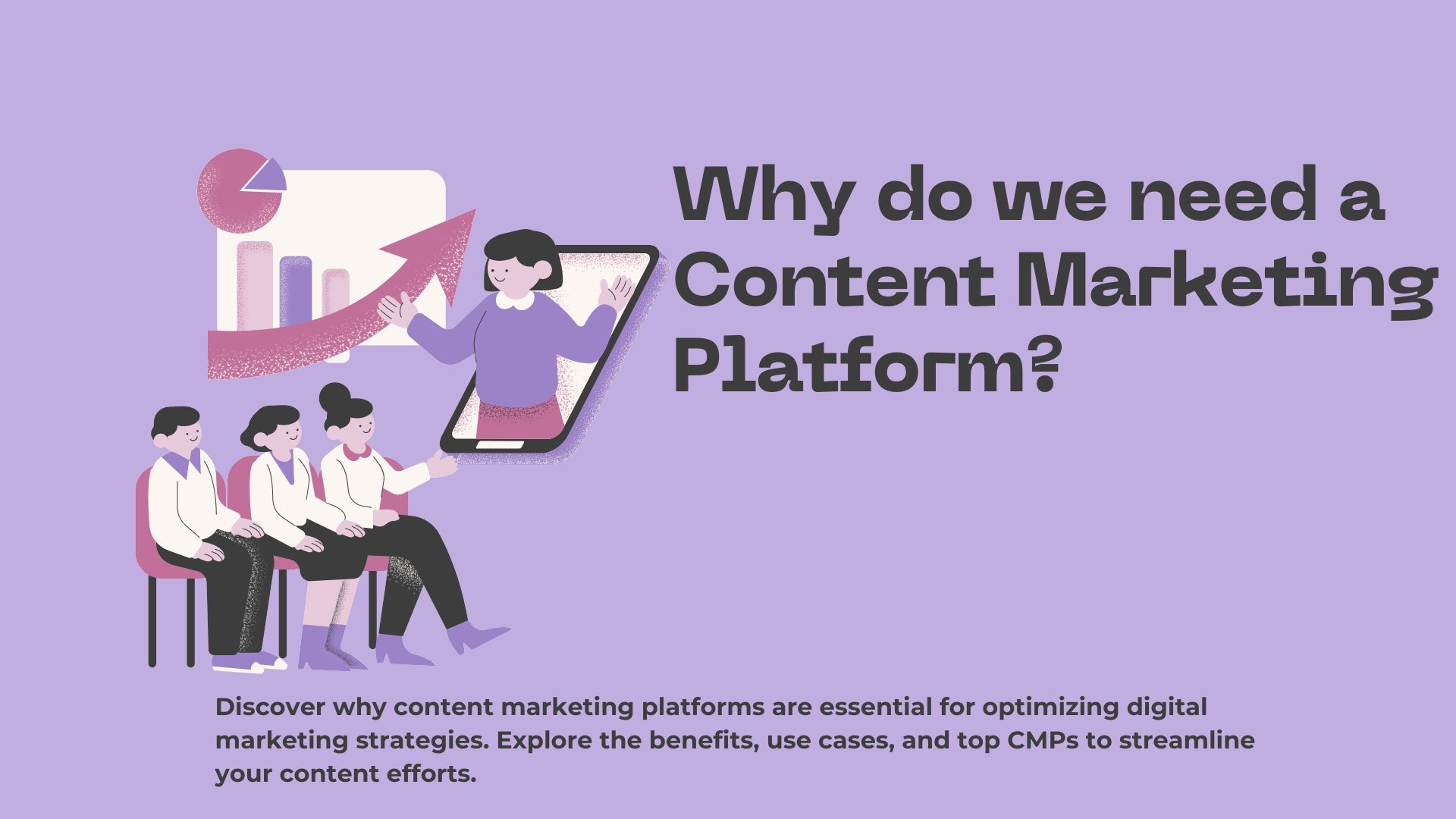
Just imagine you are running a small business and need to maintain a consistent online presence without spending much on marketing tools. This is where Content Marketing Platforms (CMPs) come to your rescue.
CMPs can be used for brainstorming content ideas, managing content calendars and distributing content across various platforms from blogs to social media. They are like all-in-one digital workspaces curated for marketers. Think of a CMP as your ideal platform for content strategy, which helps to plan, create and track content performance without any hurdles.
Platforms like StoryChief offer features that help manage content creation and distribution. They allow you to collaborate with team members, optimize content for SEO, and schedule posts all from a single dashboard.
CMPs simplify the complications in content management and empower your businesses to engage the audience effectively while saving time and resources.
What is the Difference Between a CMP and a CMS?
Having an awareness regarding the difference between a Content Marketing Platform (CMP) and a Content Management System (CMS) is necessary for optimizing your digital marketing efforts and strategies. The functionalities serve different purposes even though both CMPs and CMSs deal with content. Now, let’s see the difference between them.
Content Marketing Platform (CMP)
CMP focuses on content management by covering the entire content lifecycle from planning and creation to distribution and analysis. It integrates features that facilitate content collaboration, SEO optimization, multi-channel distribution including social media and email and performance analytics. CMPs are designed to support content marketing strategies by enabling marketers to create targeted, engaging content and measure its impact across various digital channels. HubSpot and StoryChief are among the best examples of CMPs.
Content Management System (CMS):
A CMS primarily focuses on the creation, management and publication of content on websites. It provides tools for organizing and presenting content, managing user permissions by maintaining the structure of web pages. As it provides a user-friendly interface, it helps non-technical users to create websites with available content. Drupal and WordPress are the best examples.

What Are the Benefits of Implementing CMP?
Implementing a Content Marketing Platform offers numerous advantages that can significantly enhance your content marketing efforts:
1. Centralized Content Management
CMP provides a centralized hub for managing all aspects of your content strategy from content planning and creation to distribution and analytics. As everything is integrated into one platform you don’t need to juggle between different platforms for different tasks.
2. Enhanced Collaboration
CMPs enable collaboration among team members, whether they’re in-house or remote. Features like shared calendars, task assignments, and real-time commenting ensures proper communication and everyone stays aligned on content goals and timelines.
3. Targeting and Personalization
These tools enable businesses to identify specific target audiences based on demographics, interests, and behaviors. Businesses can frame content to address the specific interests and preferences of different audience segments with this information. Personalized content increases engagement and conversion rates, as it provides a deeper understanding of the target audience.
4. Integration with Existing Tools
Many CMPs integrate with existing marketing tools and platforms, such as CRM systems, email marketing software and social media management tools. This integration ensures data flow and enhances overall marketing efficiency.
5. Insights and Performance Tracking
The built-in analytics and reporting features in CMPs, providing businesses with valuable insights into content performance. This helps businesses understand how well your content connects with the target audience and also identify the most effective engagement channels and the content pieces which increase conversions.
6. Improved Content Quality and Consistency
CMPs enable marketers to maintain consistency in messaging and branding across all channels with built-in tools for content planning and scheduling. Templates and approval workflows help improve quality standards and ensure that only quality content is being published.
Use Cases for a CMP
While implementing a Content Marketing Platform, it’s essential to explore the diverse ways it can boost your marketing strategy. A CMP serves as an effective tool set designed for content management, optimizing audience engagement and helps to achieve measurable outcomes across digital channels.
1. Targeted Audience Engagement
Providing customized content to your audience through proper channels is quintessential for a content strategy. So, the businesses should have the ability to produce such contents including specific messaging style, languages and variations. By integrating Digital Asset Management, you can use existing content instead of having to prepare from scratch all the time.
2. Deliver Your Content Faster
As CMP allows collaboration and centralized environment along with connect ability you will be able to streamline the content creation in their content lifecycle. The time spent on different tools and manually carrying over content can be focused on other value-added missions.
3. Better Content Collaboration
Organizations can improve collaboration with multiple stakeholders and departments by merging organizational workflows. CMP supports project managers and the creative teams through collaborative dashboards, calendars, task lists, asset management and much more. It enables you to maximize the content resources and efforts.
Top Content Marketing Platforms
Choosing the right Content Marketing Platform (CMP) will impact your marketing strategy and operations. Here, we’ll explore some of the top CMPs available and their key features to help you make an accurate decision:
1. HubSpot
HubSpot is a comprehensive marketing platform that offers a wide range of tools for content creation, distribution, and analytics. It is known for its user-friendly interface and robust capabilities that cater to businesses of all sizes.
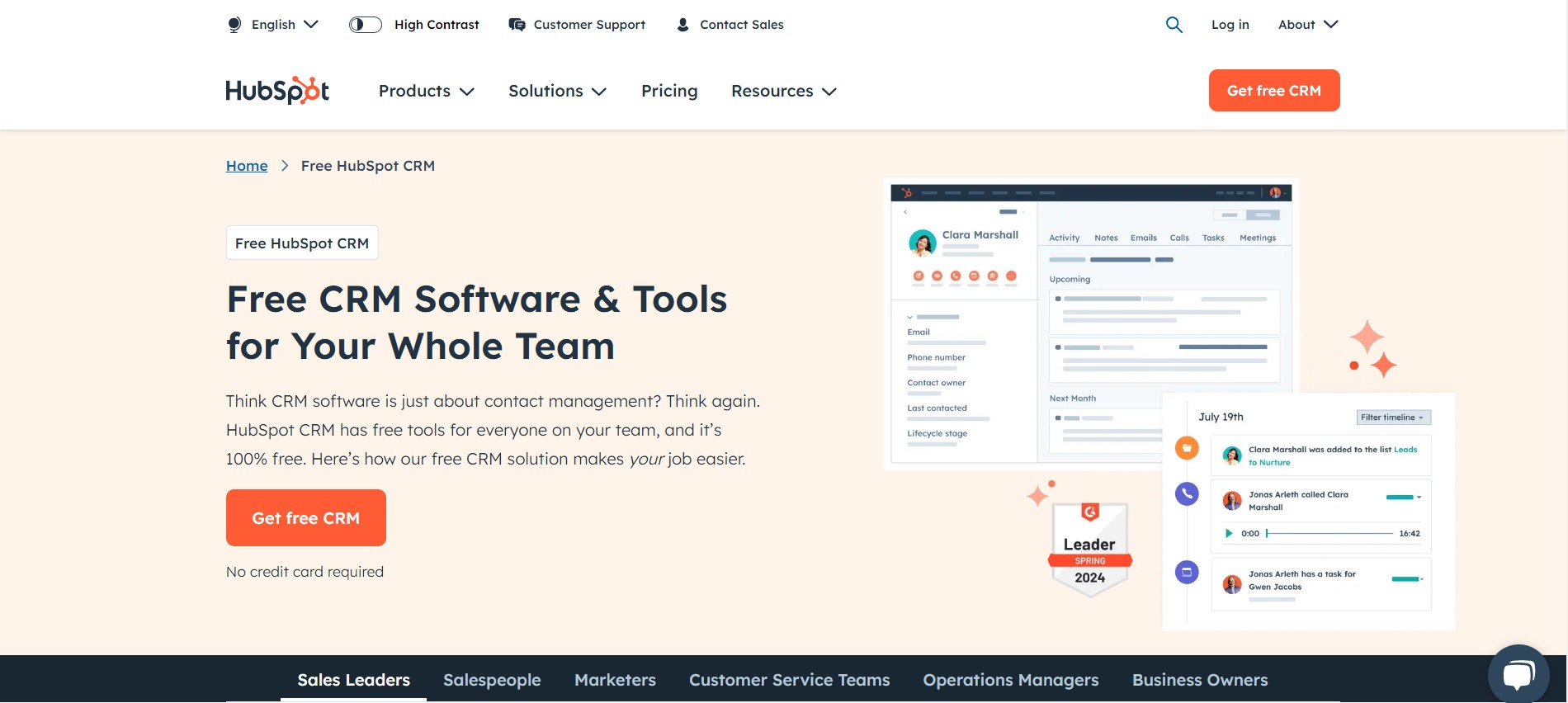
Key Features:
- Content Creation Tools: Easily create blog posts, landing pages, and social media content using an intuitive drag-and-drop editor.
- SEO Recommendations: Optimize your content with built-in SEO tools that provide keyword suggestions and on-page SEO recommendations.
- Content Calendar: Plan and schedule your content in a centralized calendar to keep your team aligned and on track.
- Analytics and Reporting: Measure the performance of your content with detailed analytics that track views, engagement, and conversions.
- Marketing Automation: Automate your email marketing, lead nurturing, and other marketing tasks to save time and improve efficiency.
2. Semrush
Semrush is a well-known digital marketing tool that offers comprehensive features for content marketing, SEO, and competitive analysis. It helps businesses to enhance their online visibility and track their digital marketing efforts effectively.
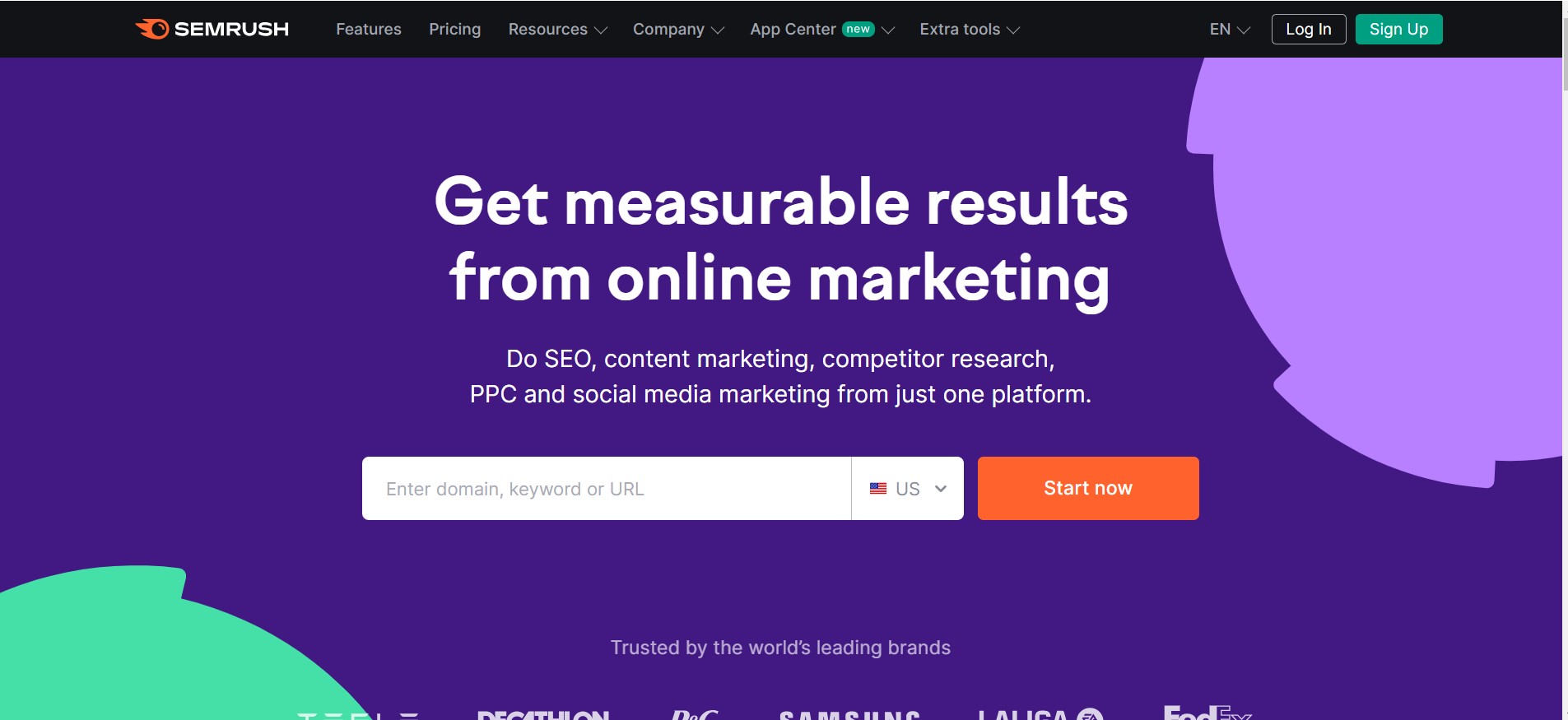
Key Features:
- Keyword Research: Identify high-potential keywords for your content with detailed keyword research tools.
- SEO Writing Assistant: Optimize your content for search engines with real-time SEO recommendations.
- Content Audit: Analyze and improve your existing content with comprehensive content audit tools.
- Topic Research: Generate content ideas based on trending topics and user queries to ensure your content remains relevant and engaging.
- Content Calendar: Plan and schedule your content with an integrated calendar to keep your marketing efforts organized.
3. StoryChief
StoryChief simplifies multi-channel content marketing by providing tools to create, distribute, and measure the content provided. It is ideal for businesses looking to maximize reach and engagement across different platforms.
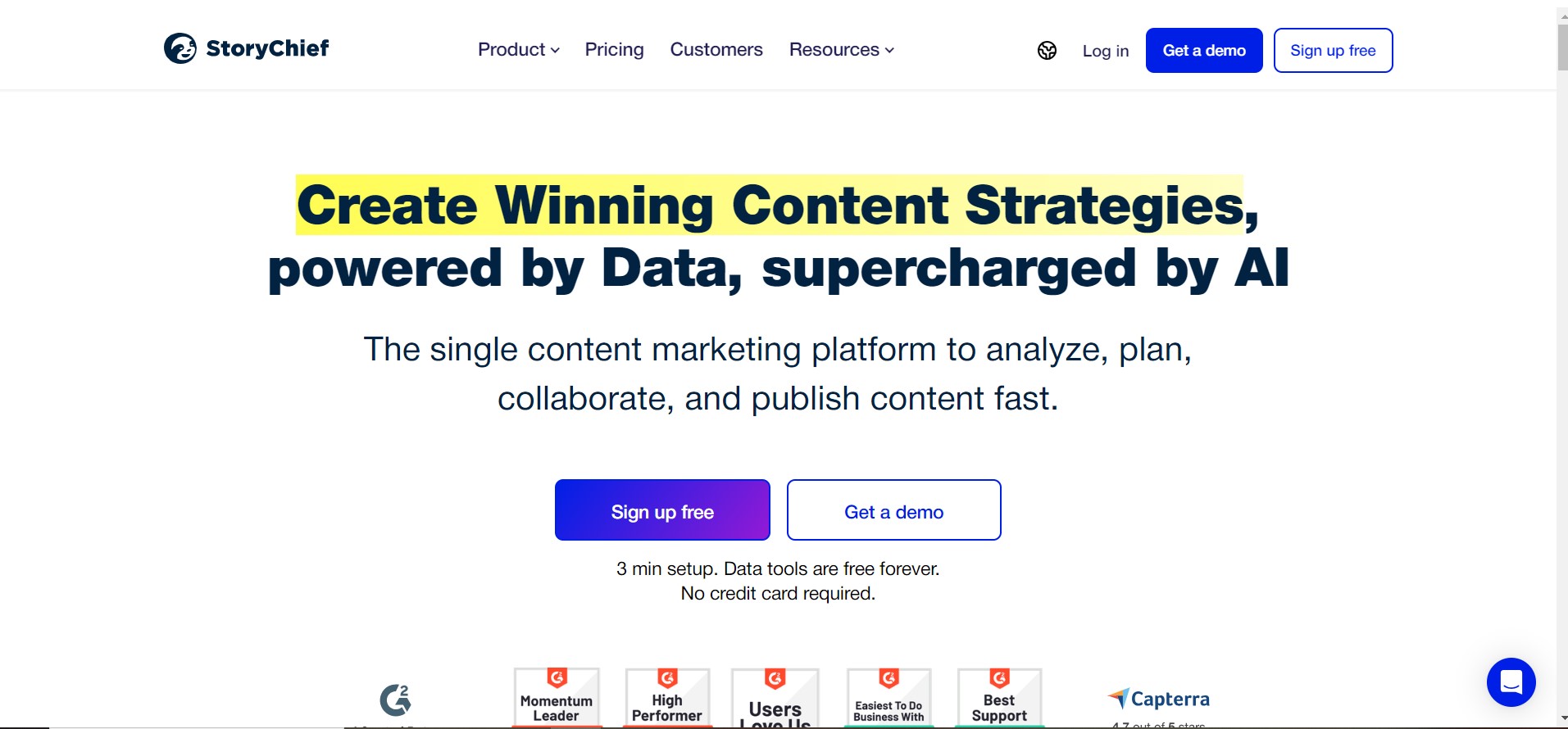
Key Features:
- Multi-Channel Publishing: Publish content to your blog, social media, and email newsletters simultaneously, reaching your audience wherever they are.
- SEO Copywriting: Improve your content’s search engine rankings with built-in SEO tools that provide real-time optimization tips.
- Collaborative Editing: Work with your team in real-time to create and edit content, ensuring a smooth and efficient workflow.
- Analytics: Gain insights into your content’s performance with detailed analytics that help you understand what resonates with your audience.
- Content Calendar: Plan and manage your content schedule to ensure consistent publishing.
4. Kapost
Kapost focuses on managing content lifecycles and is designed for B2B content marketing. It helps you to manage complex content processes and ensures alignment with your business goals.
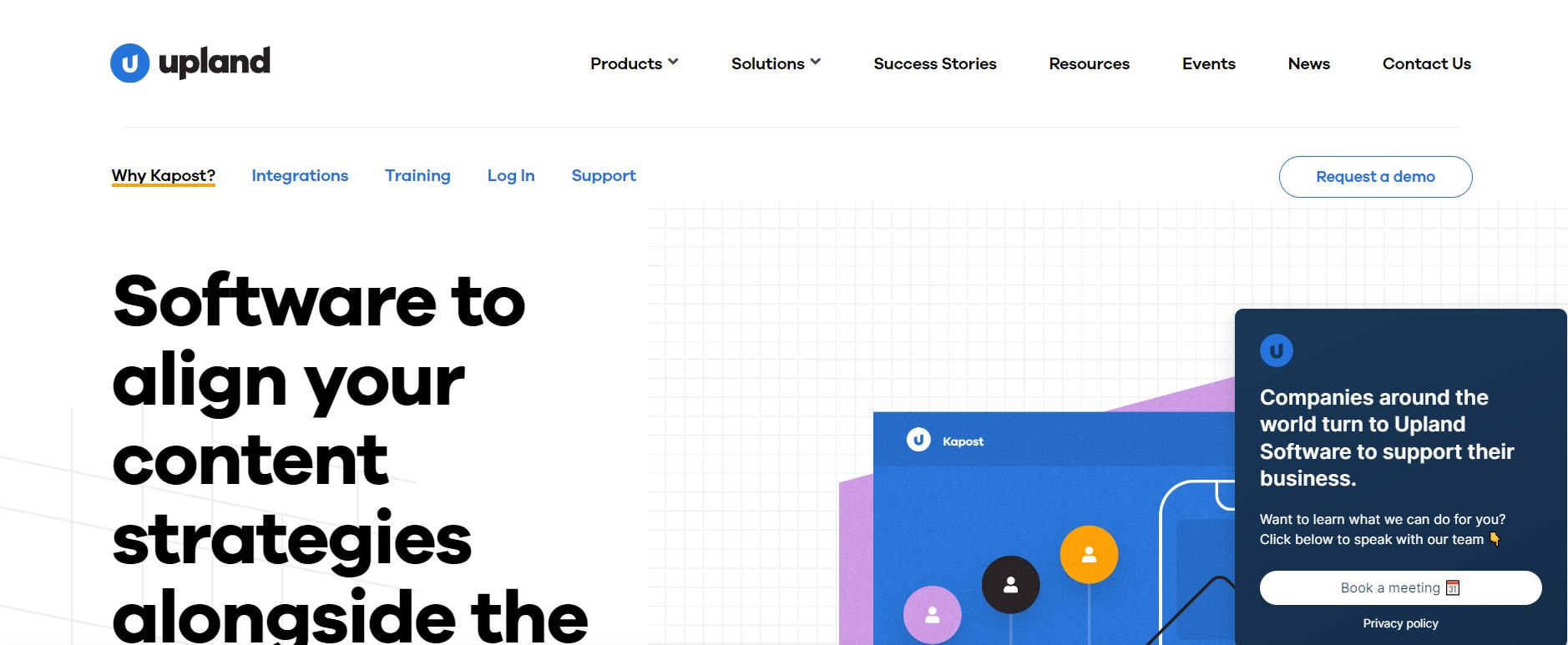
Key Features:
- Content Lifecycle Management: Manage the entire content lifecycle from creation to distribution, ensuring consistency and quality.
- Workflow Automation: Streamline content workflows with automation tools that save time and reduce manual effort.
- Content Analytics: Measure the effectiveness of your content with detailed analytics that provide insights into engagement and ROI.
- Persona Targeting: Create content tailored to specific buyer personas, ensuring relevance and resonance with your audience.
- Content Performance Dashboard: Get a comprehensive view of your content performance across different stages of the buyer’s journey.
5. Curata
Curata focuses on content curation and content marketing analytics. It is ideal for businesses looking to provide valuable curated content alongside the original content.
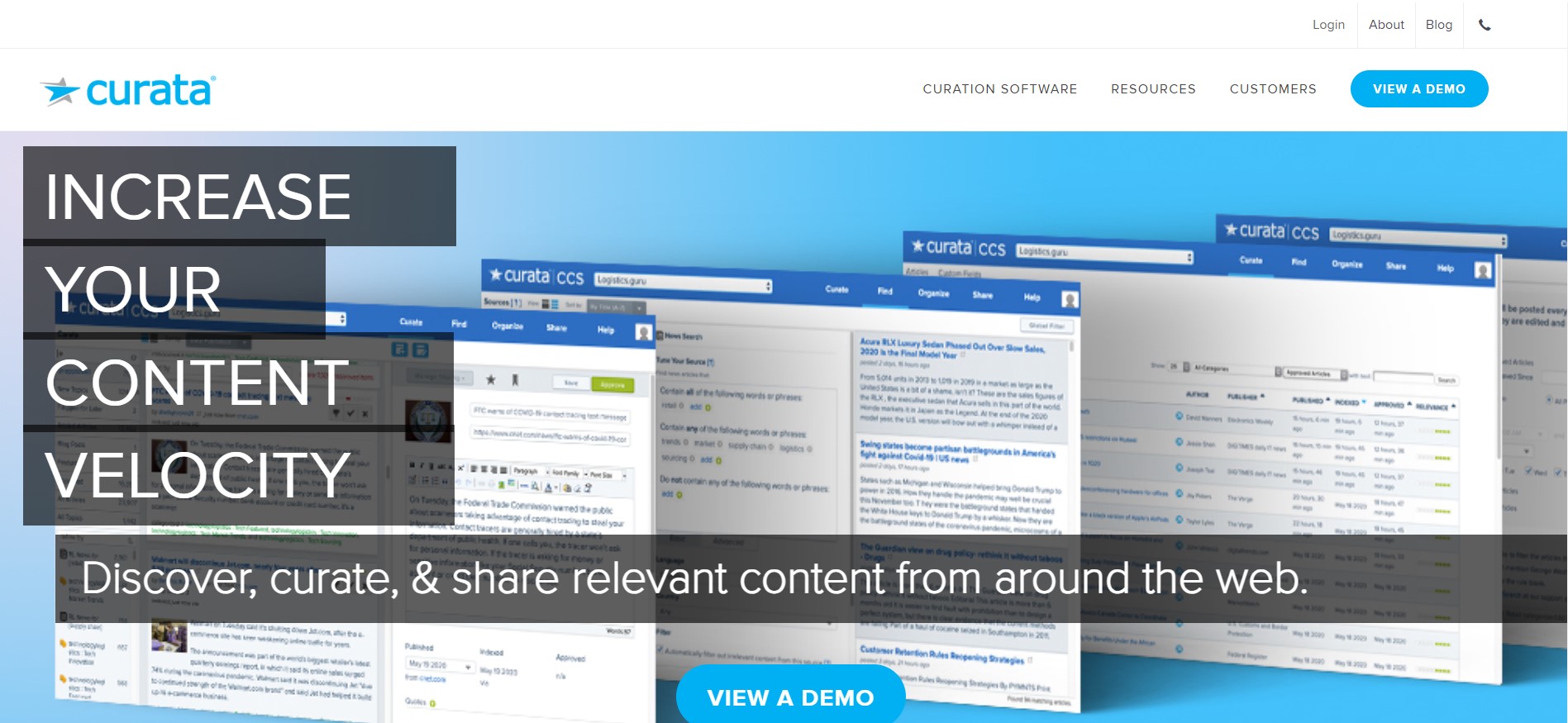
Key Features:
- Content Curation: Discover and curate relevant content from around the web, providing value to your audience and saving time.
- Content Creation: Create original content with integrated tools that streamline the writing and editing process.
- Content Marketing Analytics: Measure the performance of curated and original content with detailed analytics that provide insights into engagement and ROI.
- SEO Optimization: Optimize your content for search engines with built-in SEO tools that provide real-time optimization tips.
- Content Scoring: Score your content to identify what works best and refine your strategy accordingly.
6. Copify
Copify is a content creation platform that connects businesses with professional writers to produce high-quality content efficiently. It is ideal for companies who want to scale their content production without compromising on quality.
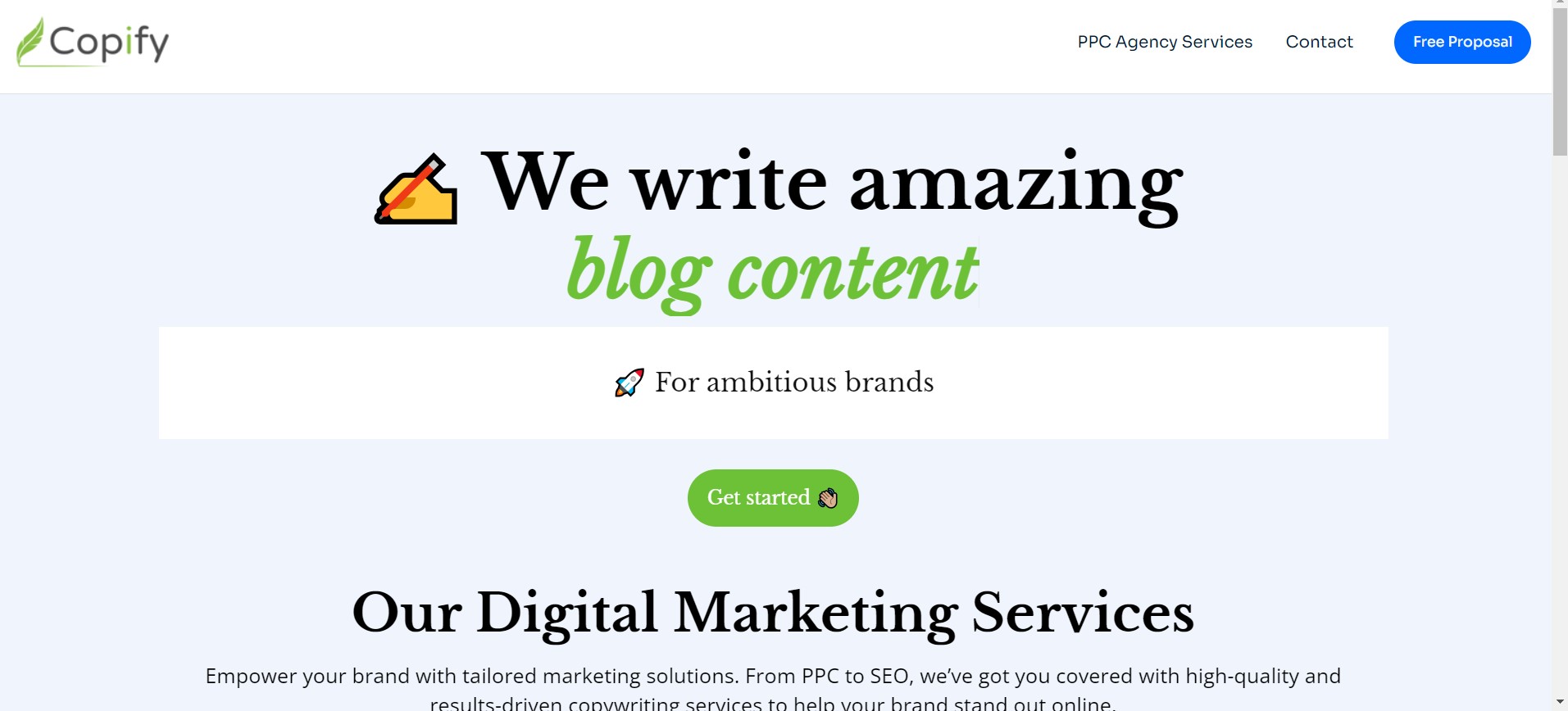
Key Features:
- Professional Writers: Access a pool of vetted, experienced writers who can create content tailored to your needs.
- Fast Turnaround: Get high-quality content delivered quickly, often within 48 hours, to keep up with your content schedule.
- Content Variety: Request various types of content, including blog posts, web copy, articles, and social media posts.
- Simple Ordering Process: Easily order content through a straightforward process that ensures your requirements are clearly communicated to writers.
- Quality Assurance: Benefit from an in-house editorial team that reviews all content to ensure it meets your standards before delivery.
7. Zerys
Zerys is a content marketing platform which focuses on content planning, creation, and project management. It is designed to help businesses and agencies manage their content marketing processes.
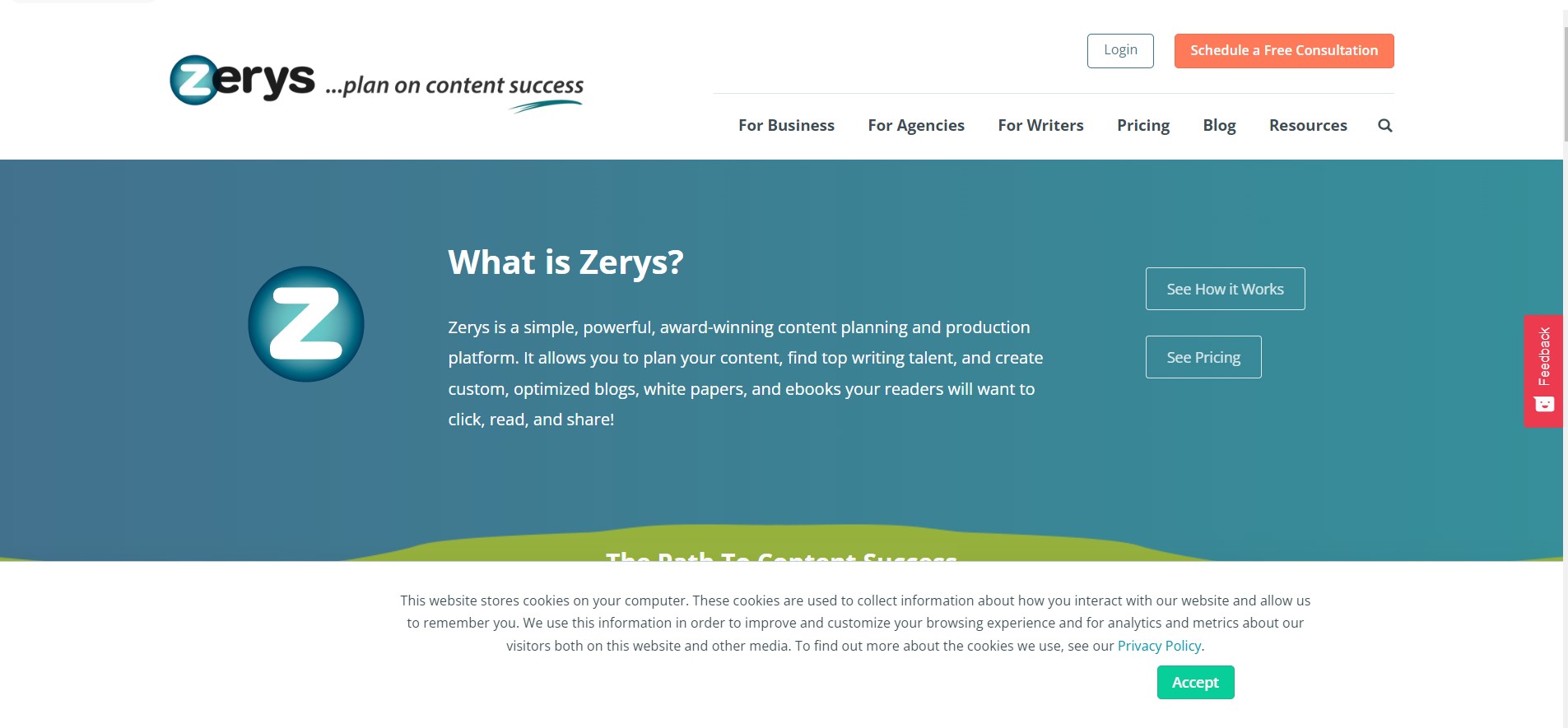
Key Features:
- Content Planning: Plan your content strategy with an intuitive content calendar that keeps your projects organized.
- Writer Marketplace: Access a marketplace of professional writers to create high-quality content tailored to your needs.
- Content Collaboration: Collaborate with your team and writers using built-in tools that facilitate communication and feedback.
- Content Optimization: Optimize your content for SEO with integrated tools that provide keyword suggestions and optimization tips.
- Project Management: Manage all your content projects in one place, ensuring deadlines are met and quality is maintained.
8. CoSchedule
CoSchedule is a reliable marketing calendar and organizational tool that helps teams plan, execute, and optimize their content marketing strategies.
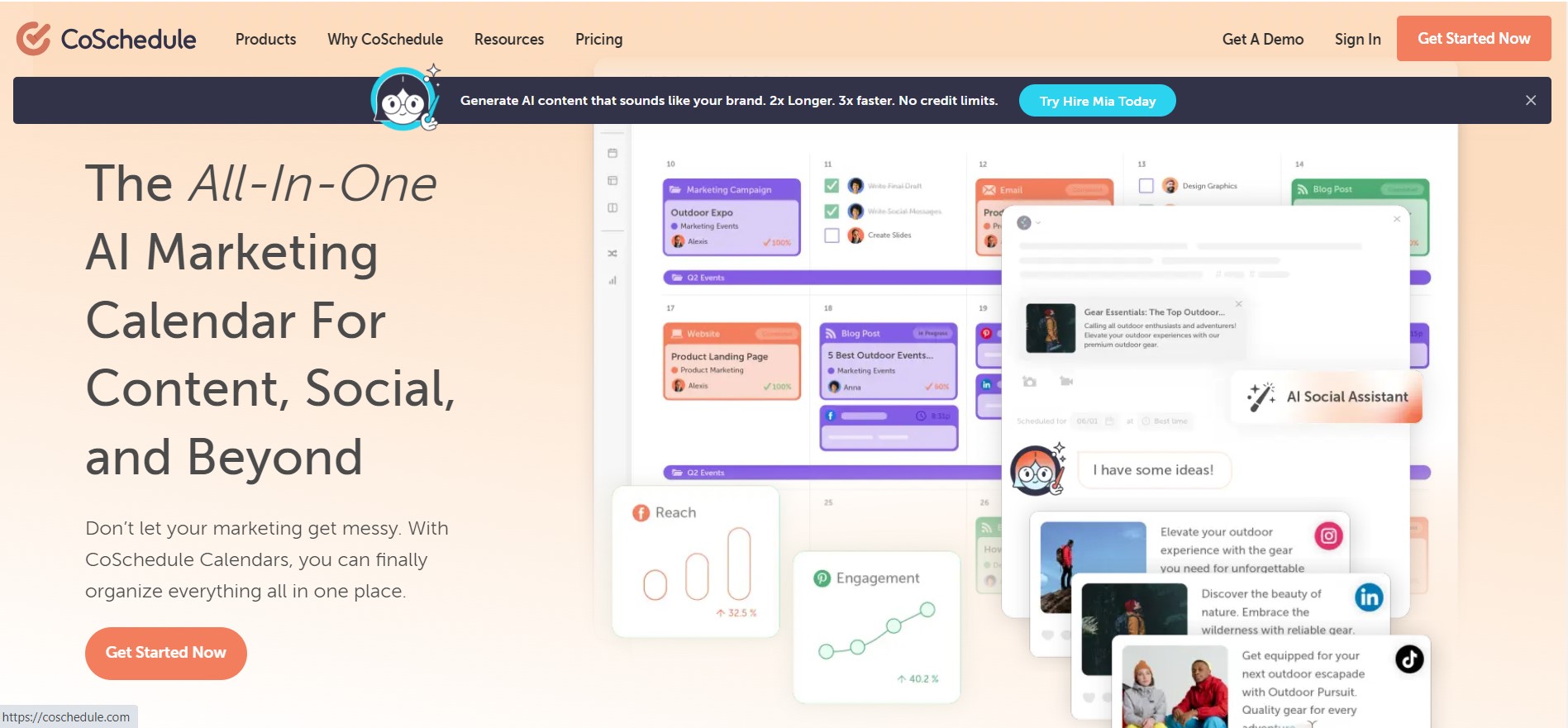
Key Features:
- Marketing Calendar: Centralize your content, social media, and marketing campaigns in a visual calendar for easy planning and scheduling.
- Task Management: Assign tasks, set deadlines, and track progress to keep your team aligned and productive.
- Social Media Management: Schedule and publish social media posts directly from the platform to maintain a consistent online presence.
- Content Organizer: Organize and manage all your content projects, ensuring timely delivery and publication.
- Analytics: Measure the performance of your campaigns with detailed analytics that highlight key metrics and insights.
9. GetSocial
GetSocial is a content analytics and distribution platform that helps businesses understand how their content is shared with social media and other channels.
Key Features:
- Content Analytics: Track how your content is shared and engaged with across various channels to understand its impact.
- Dark Social Tracking: Measure content sharing that happens through private channels, such as email and messaging apps, which are often overlooked.
- Social Sharing Tools: Integrate social sharing buttons on your website to encourage content sharing and increase reach.
- Content Recommendations: Provide personalized content recommendations to your audience based on their behavior and interests.
- Real-Time Analytics: Get real-time insights into your content’s performance, allowing you to make data-driven decisions to improve engagement.
10. PromoBox
PromoBox is a content marketing platform that focuses on creating and distributing promotional content to boost brand awareness among audiences.
Key Features:
- Content Creation Tools: Create engaging promotional content, including videos, banners, and social media posts, using an easy-to-use editor.
- Campaign Management: Plan, schedule, and execute promotional campaigns across multiple channels from a single dashboard.
- Audience Targeting: Segment your audience based on demographics and behavior to deliver personalized promotional content.
- Analytics and Reporting: Measure the effectiveness of your promotional campaigns with detailed analytics that track views, clicks, and conversions.
- Integration: Integrate with other marketing tools to streamline your promotional efforts and enhance overall campaign performance.
11. SendPulse
SendPulse is a multi-channel marketing platform that combines email, SMS, and web push notifications to help businesses by engaging their audience effectively.
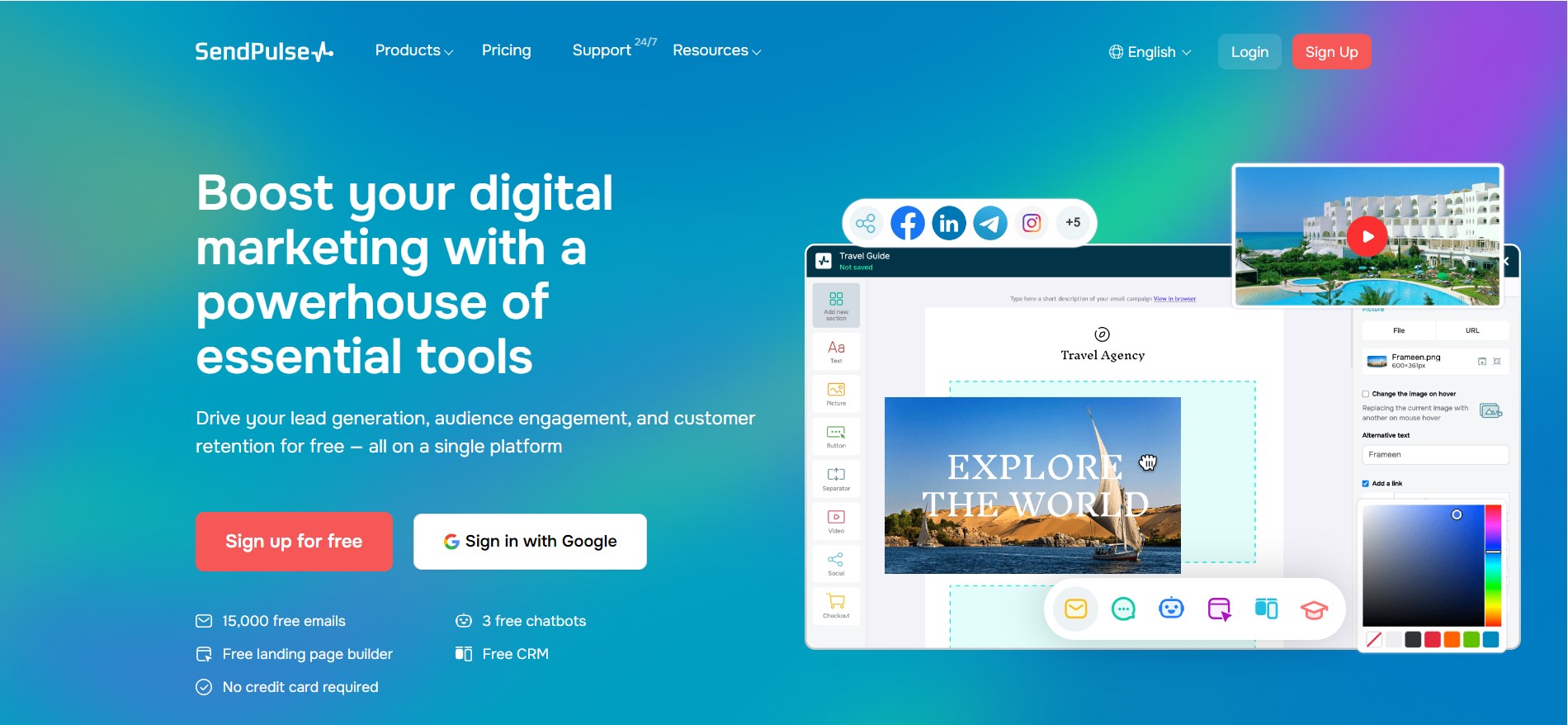
Key Features:
- Email Marketing: Create and send personalized email campaigns with a drag-and-drop editor and a wide range of templates.
- SMS Marketing: Reach your audience instantly with targeted SMS campaigns that can be scheduled and automated.
- Web Push Notifications: Engage your website visitors with real-time web push notifications to drive traffic and conversions.
- Marketing Automation: Automate your marketing processes, including email sequences, SMS messages, and web push notifications, to save time and enhance efficiency.
- Analytics: Track the performance of your campaigns with comprehensive analytics that provide insights into open rates, click-through rates, and conversions.
12. ProofHub
ProofHub is an all-in-one project management and collaboration tool that helps the marketing teams plan, collaborate and deliver projects efficiently. It also includes content marketing initiatives of the businesses.
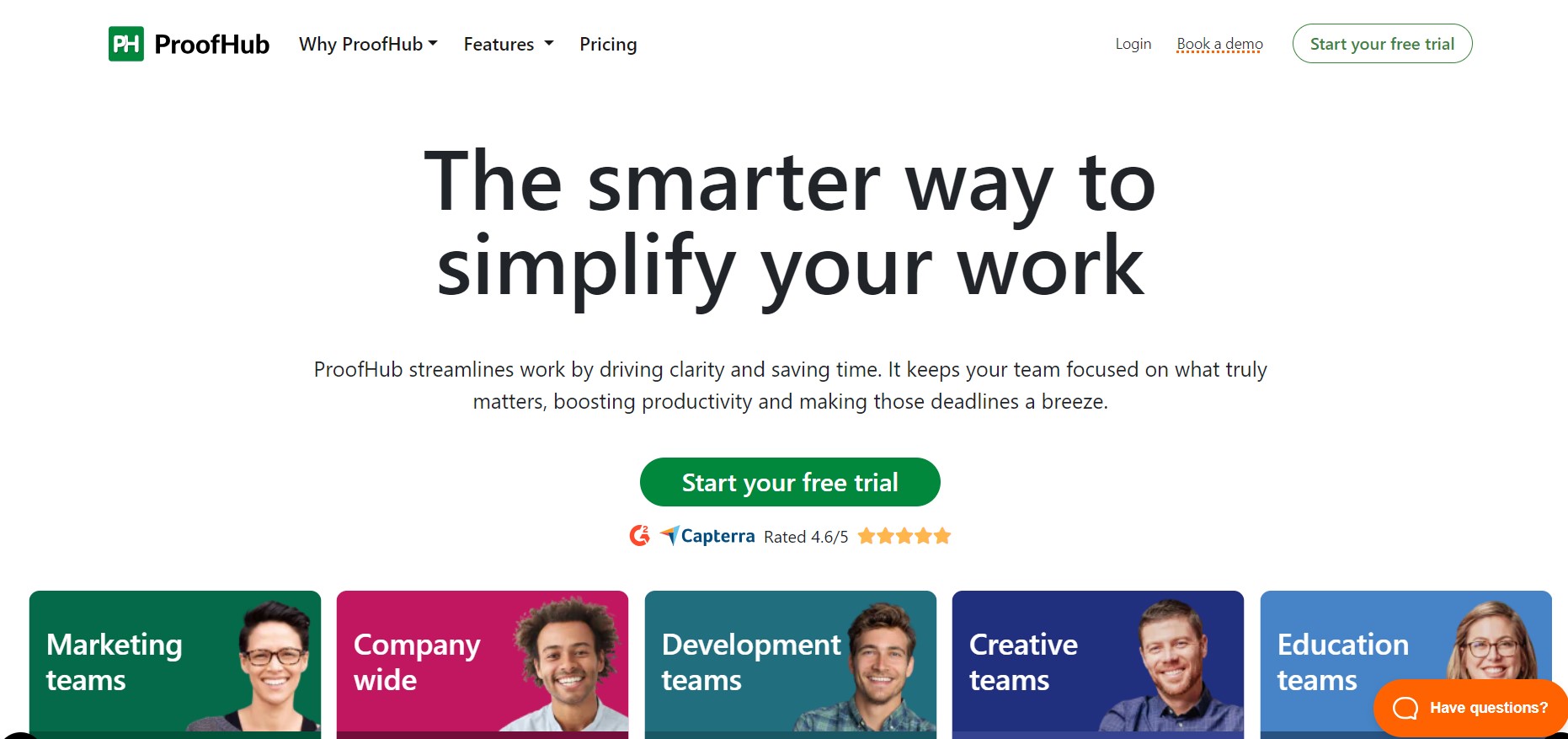
Key Features:
- Task Management: Assign tasks, set deadlines, and track progress to ensure your content projects stay on schedule.
- Collaboration Tools: Facilitate team collaboration with built-in chat, discussion forums, and file-sharing capabilities.
- Content Calendar: Organize and schedule your content marketing activities using a visual calendar, ensuring a consistent and strategic content flow.
- Proofing and Approval: Streamline the review and approval process with online proofing tools that allow team members to provide feedback and approve content.
- Custom Workflows: Create custom workflows to match your team’s processes and improve efficiency in content production and distribution.
- Reporting and Analytics: Generate detailed reports to track project progress, team performance, and overall productivity.
13. Contentful
Contentful is a flexible CMP designed for creating, managing and distributing content across different channels. It can be customized and integrated with your existing tech stack.
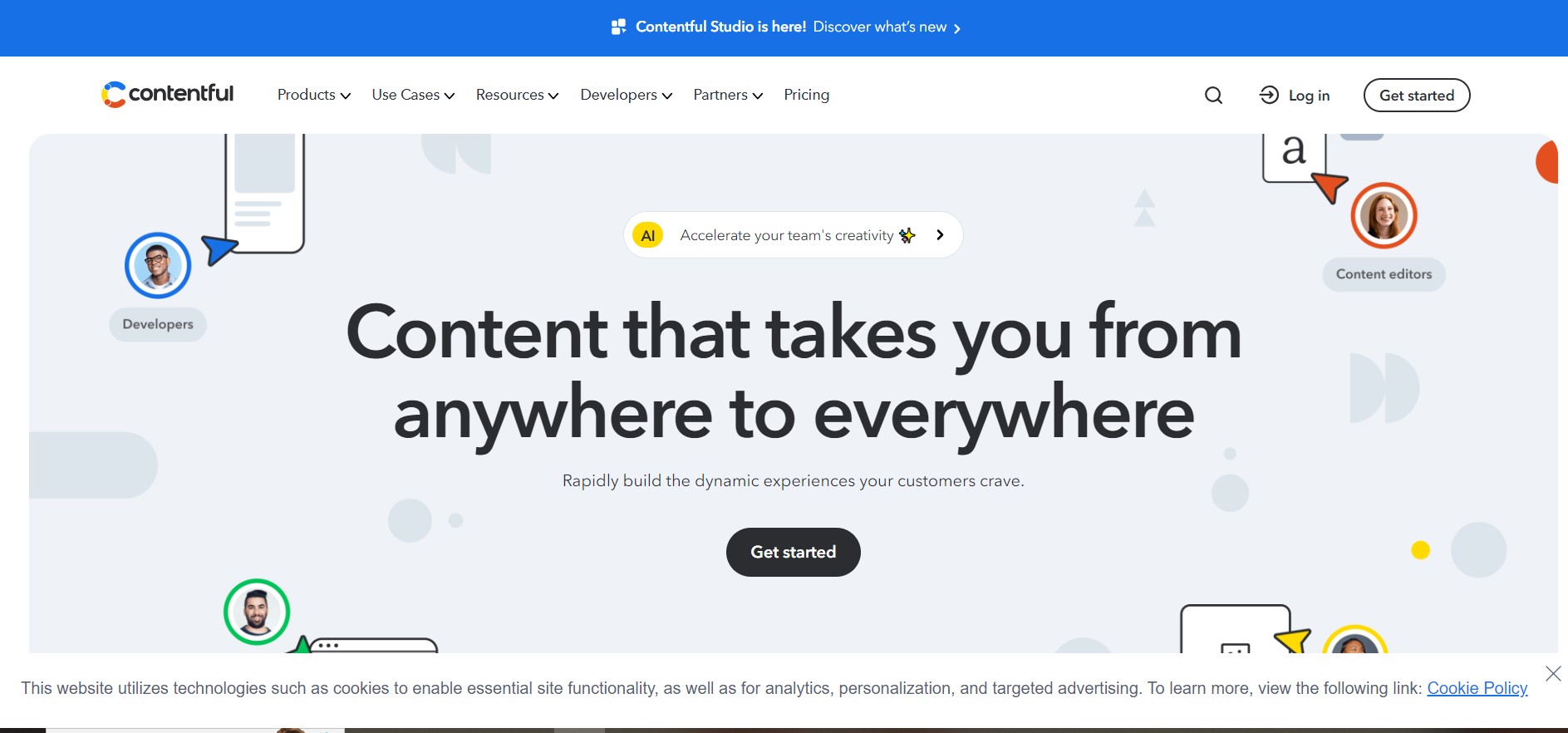
Key Features:
- API-First Approach: Integrates seamlessly with your existing tech stack and allows you to deliver content to any digital platform.
- Content Modeling: Customize content types and structures to fit your needs, ensuring consistency across all content pieces.
- Omnichannel Delivery: Distribute content across web, mobile, and other digital platforms effortlessly.
- Collaborative Workflows: Enhance team collaboration with built-in workflows and permissions that streamline the content creation process.
- Real-Time Previews: Preview how your content will look on different devices before publishing.
14. Brand24
Brand24 is a social media monitoring and analytics tool that helps businesses track their brand mentions. It also monitors competitor activity and analyzes customer behaviour across various online platforms.
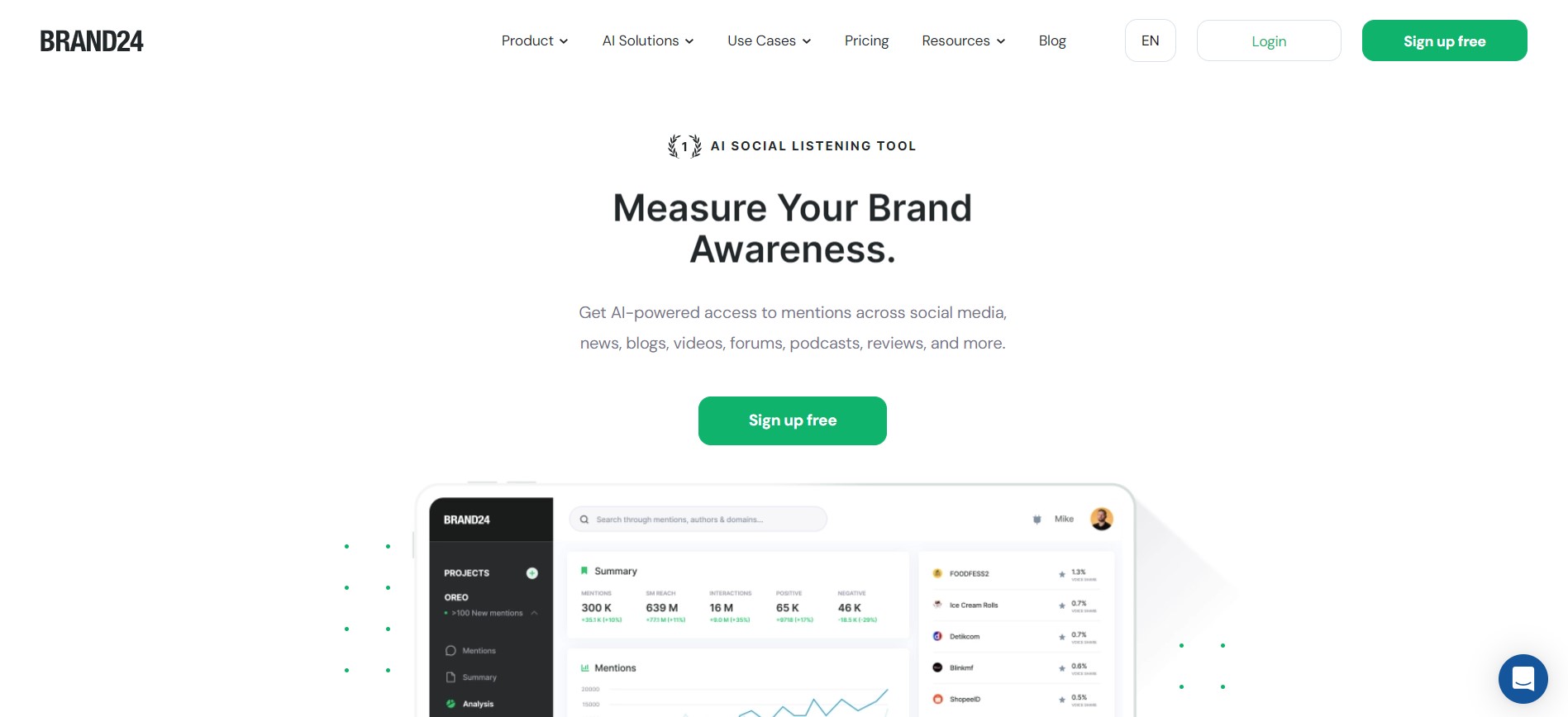
Key Features:
- Social Media Monitoring: Monitor mentions of your brand and relevant keywords in real-time across social media platforms, blogs, forums, and news sites.
- Competitor Analysis: Track competitor mentions and analyze online reputation and marketing strategies to gain competitive insights.
- Sentiment Analysis: Evaluate customer sentiment surrounding your brand to gauge public perception and identify areas for improvement.
- Influencer Marketing: Identify key influencers discussing your brand or industry to leverage for partnerships and promotional campaigns.
- Customizable Dashboards: Create custom dashboards with metrics and reports tailored to your specific marketing goals and KPIs.
15. Outbrain
Outbrain is a content discovery and advertising platform helps you amplify the content. It helps to reach a larger audience across premium publisher sites.
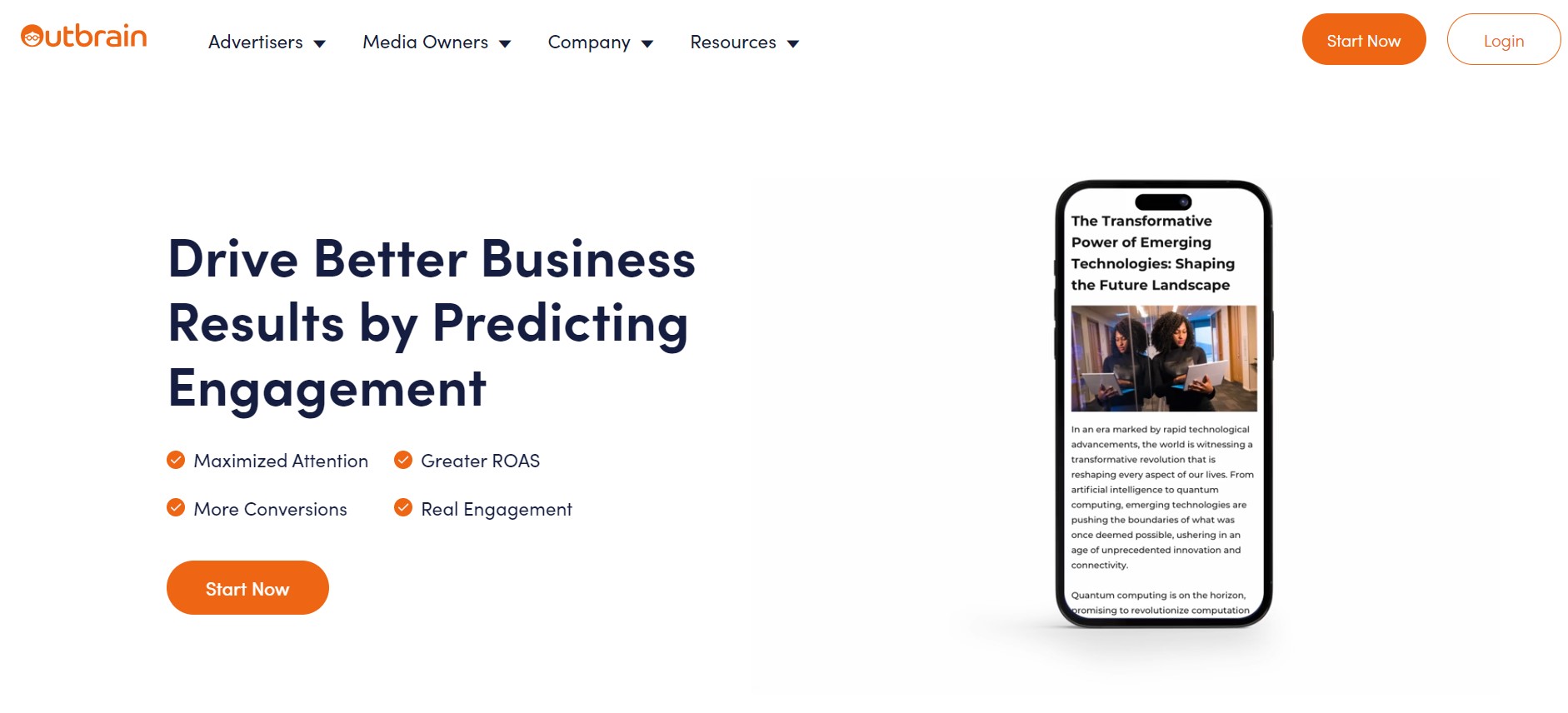
Key Features:
- Content Amplification: Promote your content through native advertising placements on top publisher websites to increase visibility.
- Audience Targeting: Reach your target audience based on demographics, interests, and behaviors to ensure your content resonates with the right users.
- Native Ads: Blend seamlessly with the look and feel of the publisher’s site, enhancing user experience while driving traffic to your own content.
- Campaign Management: Manage and optimize your native advertising campaigns with real-time performance analytics and insights.
- Content Recommendations: You can utilize Outbrain’s algorithm to recommend your content to relevant audiences on publisher sites, maximizing reach and engagement.
Final Words
Always keep in mind that choosing the right Content Marketing Platform is essential for the success of your content marketing efforts. The platforms discussed in this blog offer benefits that can help you improve the quality of your content creation, management and distribution processes. That’ll help you optimize your content marketing strategy and boost more engagement.
Investing in a right Content Marketing Platform is not just about keeping up with the competition, it’s about setting your brand among the target audience. Remember, the key to a successful content marketing strategy lies adaptation to new trends. Stay updated with the latest trends and always keep your audience at the forefront.
If you need assistance in implementing these strategies or exploring further, without waiting feel free to reach out to Rank Scholars for SEO and content marketing solutions.
Devika is an SEO content writer with a knack for creating compelling content that drives traffic and engagement. Her dedication to SEO and creativity ensures impactful and engaging material.

